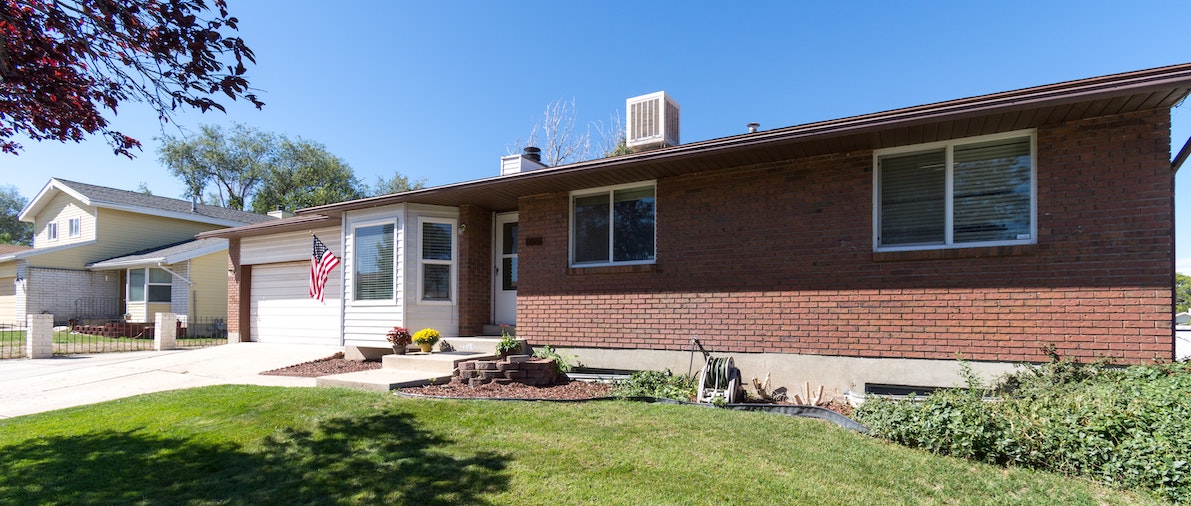Real Estate Investing
How Will Rising Interest Rates Affect Landlords?
Last Updated May 31, 2022


First, a note on vocabulary: at Belong, we hate the words “landlord” and "tenant." Instead, we call everyone in our residential network Homeowners and Residents. Because language matters, and we want your home to be loved, not just rented. That said, we use the terms “homeowner,” “landlord,” and “investor” interchangeably in this post to help more people find this useful information. To learn more about why we’re working to change how people think about renting, see this article in TechCrunch.
While interest rates have been historically low over the last twenty years, they are currently on the rise, raising concerns within the real estate industry.
On March 16th, the Fed approved a 0.25 percentage point rate hike. During their May meeting, the FOMC raised the benchmark rate by half-a-percentage point, following the quarter-point increase in March. Experts suggest that several more hikes are likely to follow later this year. Consequently, landlords need to understand how they will be affected by these rising interest rates.
What causes interest rates to increase?
Federal Open Market Committee (FOMC), often referred to as the Fed, targets a specific interest rate. The FOMC, or Fed, is composed of seven governors of the Federal Reserve Board and five Federal Reserve Bank presidents. The FOMC meets eight times each year to set the target federal funds rate. In response to this target, the Federal Reserve System will adjust the money supply so that interest rates will move toward the target rate.
The federal funds rate is the interest rate banks will pay for overnight borrowing from the federal funds market. Any change in this interest rate will affect consumer interest rates, yields on Treasury notes, and indirectly, long-term conventional mortgage interest rates. Fixed rates on conventional mortgages are set slightly higher than the yields on 30-year Treasury bonds.
When the Fed raises the federal funds target rate, it increases the cost of credit throughout the economy. Generally, the Fed will cut interest rates when the economy is struggling and raise them when it is strong.
How do rising interest rates affect the housing market?
An overall increase in interest rates will have a cooling effect on the housing market. When interest rates increase on mortgages, borrowing the same amount of money costs more—a higher interest rate results in a higher monthly mortgage payment for most buyers. As a result, homebuyers may suspend or slow future home purchases.
Increased demand for rental property
When borrowing costs increase, purchasing a home becomes more costly. This is especially true for first-time buyers because they do not have equity in a current home. After relatively lower interest rates, potential homebuyers are likely to be more sensitive to cost increases. As a result, current tenants may choose to stay in a rental property for an extended period. When more people remain in rentals, it increases the demand in the rental market.
Rental property values
Interest rates also affect real estate values, consistent with other investment vehicles. For landlords, an increase in interest rates may result in slower appreciation or a decrease in the value of a rental property. Increased interest rates can impact the availability of capital and the demand for investments. Changes in availability affect the supply and demand for property and, as a result, the price.
How do rising interest rates affect real estate investors?
Interest rate increases equally impact real estate investors. Like traditional homebuyers, it will cost landlords more to borrow for new real estate investments.
Purchasing power for rental properties and cash flow concerns
Landlords and real estate investors looking to purchase additional properties will have higher borrowing costs, impacting their cash flow and annual yield. Landlords should continue to carefully calculate cash flows and look for ways to adjust to higher borrowing costs.
Some may suggest that landlords purchase new rental properties with a plan to refinance when interest rates decrease. However, we do not know if and when rates may decrease. Refinancing also comes with additional costs and restarts the amortization of a loan.
Real estate investors can combat higher borrowing costs by improving their credit scores and shopping around for mortgages with the best rates.
Cash is still king in real estate
Cash will continue to reign during periods of growing interest rates. The increased borrowing costs caused by these interest rates may decrease the overall cash flow for landlords. Subsequently, it may become more challenging to compete for fewer ideal investment properties, and cash buyers will continue to see less competition.
Improved capitalization rates
Real estate investors will likely see improved capitalization rates due to increased interest rates. A lower capitalization rate can indicate less investment risk. However, capitalization rates don't factor in increased borrowing costs. The higher demand for rental housing can improve your cap rates as a landlord. Similar to a decrease in cash flow, lower cap rates can make finding deals for new investment properties more difficult.
Concerned about rising interest rates? Look for favorable fundamentals
Overall health of the economy
An increase in interest rates indicates that the Fed believes the economy is strong. Interest rates are just one factor used to assess the housing market. The FOMC only raises rates if they determine that the economy can withstand the change. Even after recent increases, interest rates remain historically low.
Real estate investment fundamentals
While interest rates provide crucial decision-making metrics, landlords and investors should continue to focus on the fundamentals. A property valuation will continue to provide fair market value of a real estate property. Comparing each property valuation in conjunction with a cash flow and profit opportunity analysis will allow you to evaluate the risk and opportunity of each investment. Further, by carefully considering the purpose and horizon of the investment, you can be sure you're making ideal ventures in the current market.
Calculate your opportunity
While rising interest rates will affect landlords in several ways, immense opportunity still exists in real estate investment. Landlords can mitigate cash flow changes by carefully calculating costs and options.
Belong offers a form for homeowners to estimate how much they can make renting out their homes. We also guarantee our landlords rental income even when a home is vacant. Make the most of increasing interest rates and see how much you can earn with Belong.
About The Author
Jordan Newsom
Jordan Newsom is a highly-caffeinated writer who loves delighting readers, using content to teach, and broadening perspectives. When she's not behind a computer screen, she's hunting down the best coffee shops, breweries, and restaurant patios in Denver, Colorado.




